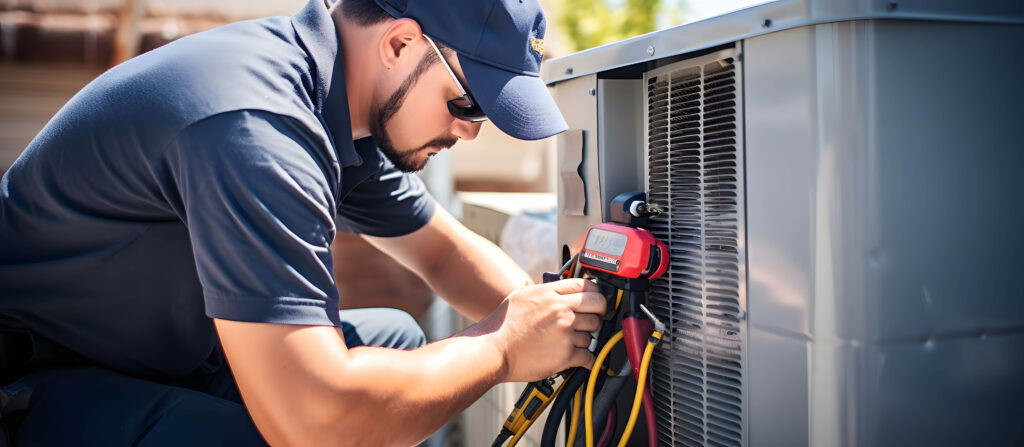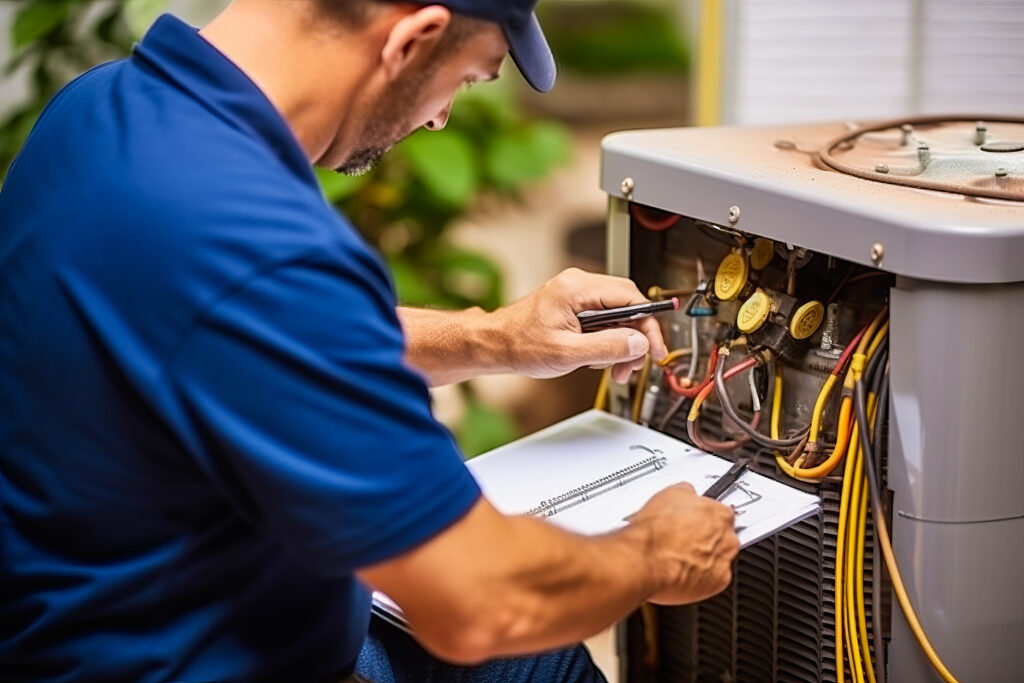- HVAC Real Estate Inspection
- Inspection Service Milestones
- Included Inspection Services
- Frequently Asked Questions
- Get a Quote
HVAC Real Estate Inspection
HVAC real estate inspections are comprehensive assessments conducted by qualified technicians to evaluate the condition and performance of HVAC systems in properties being bought or sold. These inspections provide valuable insights for buyers, sellers, and real estate agents, identifying any deficiencies or safety concerns that may need to be addressed before completing a transaction.

During an HVAC real estate inspection, technicians examine various components, including the furnace, air conditioner, ductwork, and thermostats. They assess the age and condition of equipment, check for proper installation, and look for signs of wear, damage, or inadequate maintenance. The detailed inspection report helps buyers make informed decisions and negotiate necessary repairs or replacements.
By ensuring that the HVAC system is in good working condition, these inspections facilitate smooth real estate transactions, protect buyers from unexpected expenses, and promote occupant comfort and safety. HVAC real estate inspections are essential for maintaining the integrity and functionality of heating and cooling systems in new properties.
Inspection Service Milestones
HVAC real estate inspections are essential evaluations conducted by qualified technicians to assess the condition, efficiency, and safety of heating, ventilation, and air conditioning systems in residential and commercial properties. These inspections are crucial during real estate transactions, providing insights into the HVAC system’s performance and identifying potential issues.

Major Service Milestones in HVAC Real Estate Inspection:
- Initial Inspection: This is the comprehensive assessment of the HVAC system’s overall condition, including the furnace, air conditioner, ductwork, thermostats, and ventilation.
- Component Testing: Technicians test individual components like the thermostat’s calibration, blower components, and electrical connections to ensure they function correctly.
- Airflow and Temperature Checks: Inspectors evaluate airflow through the system and measure temperature differences across vents to identify inefficiencies.
- Refrigerant Levels: Checking and refilling refrigerant levels as needed to prevent problems like freezing or warm air output.
- Ductwork Inspection: Inspecting for leaks and ensuring proper airflow through ducts.
- Safety Checks: Ensuring electrical connections are secure and there are no gas leaks or other safety hazards.
- Final Report: Providing a detailed report with findings and recommendations for repairs or replacements.
Included Inspection Services
HVAC real estate inspections are comprehensive evaluations conducted by qualified technicians to assess the condition, efficiency, and safety of HVAC systems in properties undergoing sale or purchase. These inspections provide valuable insights to buyers, sellers, and real estate agents, ensuring informed decision-making and smooth transactions.

Services Included in HVAC Real Estate Inspection:
- Thermostat Calibration: Ensures accurate temperature control.
- Blower Components Inspection: Checks for proper operation and any necessary adjustments.
- Airflow Testing: Evaluates airflow through the HVAC system and home.
- Electrical Connection Inspection: Ensures all connections are secure and functioning.
- Equipment Condition Assessment: Evaluate the condition of furnaces, heat pumps, air conditioners, and other equipment.
- Coil Inspection: Checks condenser and evaporator coils for cleanliness and damage.
- Refrigerant System Leak Check: Visually inspect for leaks in the refrigerant system.
- Duct Integrity Evaluation: Ensures ductwork is intact and not leaking.
What is included in an HVAC real estate inspection?
- An HVAC real estate inspection includes checking the thermostat, blower components, airflow, electrical connections, equipment condition, coils, refrigerant levels, and duct integrity.
Why is an HVAC inspection important during a real estate transaction?
- It identifies potential issues, ensures the system’s efficiency and safety, and provides valuable insights for buyers and sellers to make informed decisions.
How often should HVAC systems be inspected?
- HVAC systems should be inspected annually to ensure they are functioning correctly and efficiently.
Can I perform an HVAC inspection myself?
- While basic visual inspections can be done by homeowners, a professional HVAC technician should conduct thorough inspections to ensure all components are correctly evaluated.
What are common issues found during HVAC inspections?
- Common issues include low refrigerant levels, faulty electrical connections, duct leaks, and worn-out components.
How long does an HVAC inspection take?
A typical HVAC inspection can take a few hours, depending on the system’s size and complexity.
What should I do if the inspection report identifies problems?
Discuss the findings with your real estate agent and consider negotiating repairs or replacements with the seller before finalizing the transaction.
Request a Quote for HVAC Real Estate Inspections
Buying or selling a property? Get a comprehensive HVAC inspection to make informed decisions and avoid unexpected costs. Click here to get a quote and secure your peace of mind.
